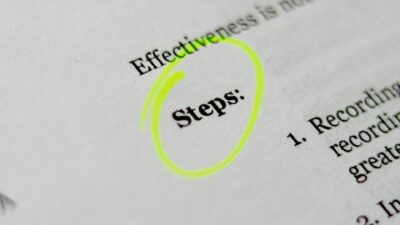Setbacks are inevitable in the life of an entrepreneur. Whether it’s a failed product launch, a missed funding round, or unexpected market shifts, every founder faces moments that test their resolve.
But here’s the truth: Success isn’t defined by the absence of failure; it’s determined by how quickly and effectively you bounce back. Resilience is the superpower that enables founders to turn setbacks into stepping stones.
In this guide, we’ll explore actionable lessons in resilience to help you bounce back stronger from challenges and setbacks.
Why Resilience Matters for Founders
Resilience isn’t just about enduring hardship—it’s about thriving in uncertainty. Founders who cultivate resilience:
- Recover faster from setbacks.
- Maintain focus during tough times.
- Use failures as opportunities for growth and innovation.
The startup world is unpredictable, and resilience gives you the strength to stay the course when things don’t go as planned.
5 Lessons in Resilience Every Founder Should Master
1. Reframe Setbacks as Lessons
Setbacks aren’t failures—they’re data points. Each setback provides valuable insights into what works and what doesn’t.
Key Action: When you face a setback, ask yourself: What went wrong? What can I learn? How can I improve next time?
Example: After receiving multiple rejections from investors, a founder identified gaps in their pitch and refined their business model. The next pitch secured funding.
2. Build a Strong Support System
Resilience doesn’t happen in isolation. Surrounding yourself with mentors, peers, and advisors provides perspective, encouragement, and actionable advice during tough times.
Key Action: Actively seek out relationships with people who understand your journey. A mentor’s wisdom or a peer’s shared experience can make all the difference.
Example: Many successful founders credit their networks for helping them navigate challenges, from fundraising hurdles to strategic pivots.
3. Focus on What You Can Control
When faced with adversity, it’s easy to feel overwhelmed by things outside your control. Resilient founders redirect their energy to controllable factors, enabling them to take productive action.
Key Action: Break down challenges into controllable and uncontrollable elements. Focus your efforts on what you can change.
Example: During a supply chain disruption, a founder shifted focus to improving customer communication and sourcing alternative suppliers, turning a potential crisis into an opportunity to build trust.
4. Cultivate a Growth Mindset
Resilient founders see challenges as opportunities for growth. A growth mindset turns failures into learning experiences and adversity into fuel for improvement.
Key Action: Embrace feedback and view mistakes as part of the journey. Ask: How can I grow from this experience?
Example: After a marketing campaign underperformed, a team used the insights to refine their messaging, resulting in a 40% increase in engagement in the next campaign.
5. Prioritize Your Well-Being
Resilience starts with taking care of yourself. A healthy mind and body are essential for bouncing back from setbacks. Rest, exercise, and mindfulness practices build the mental and emotional strength you need to face challenges head-on.
Key Action: Incorporate activities into your routine that recharge your energy—whether it’s a daily walk, yoga, or journaling.
Example: A founder dealing with burnout implemented a weekly “no-work day,” leading to improved focus and decision-making.
Tools and Resources for Building Resilience
Here are tools and strategies to help you strengthen your resilience:
- Reflection Journals: Use tools like Day One or Evernote to track lessons learned from challenges and document personal growth.
- Mentorship Platforms: Platforms like Clarity.fm or Score.org connect you with experienced advisors for guidance during tough times.
- Mindfulness Apps: Apps like Calm, Headspace, or Insight Timer help reduce stress and improve focus.
- Networking Communities: Join founder groups on LinkedIn, Slack, or Reddit to share experiences and gain support.
Practical Steps to Build Resilience
Here’s how you can start building resilience today:
- Conduct a Setback Analysis: Think about a recent failure. Write down what happened, what you learned, and what you’ll do differently next time.
- Reach Out to Your Network: Schedule a call with a mentor or peer to discuss current challenges and gain fresh insights.
- Create a Resilience Routine: Incorporate activities that support your mental and physical well-being, such as meditation, exercise, or journaling.
Reflection Prompt
When faced with setbacks, do you focus on the lessons they offer, or do you let them define your journey?
Closing Thoughts: Resilience is a Skill
Resilience isn’t something you’re born with—it’s something you build through practice. As a founder, your ability to bounce back isn’t just about surviving setbacks—it’s about using them to grow, innovate, and thrive.
Remember, every great founder has faced failures. What sets them apart is their ability to turn those failures into fuel for success. The art of bouncing back is the secret to building a business—and a mindset—that can weather any storm.



